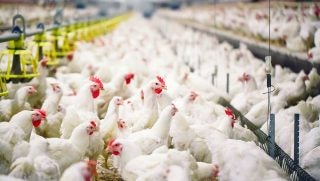I remember the first time I hit “publish” on my blog. I was terrified that I would be ostracized for sharing my thoughts about modern agriculture. What if someone actually reads this?!? As it turns out, those fears were unfounded. Most people who read my work were encouraging, and I’ve made good friends with other like-minded individuals over the years. I have zero regrets about it.
But when I started a decade ago, not everyone was supportive. Sure, people didn’t mind when I shared a photo of me standing in the corn field. But addressing misinformation, promoting modern and conventional production methods, and presenting science in an easily-digestible format wasn’t always so appreciated. In fact, there were several times other influencers told me I needed to knock it off.
I didn’t understand their reasoning back then, and these days I’m even more convinced they were wrong. Social media allows people to share and spread false information faster than wildfires. And despite attempts to curb or flag this content, the social media companies have largely failed. It’s like cancer that doesn’t have any cure.
But it’s just social media, right? It doesn’t have any effect on the real world!
Wrong. Disinformation that spreads online is increasingly finding its way to the halls of government and regulatory agencies. The crap spread on social media is turning into crap laws and regulations.

Most of us are familiar with the propaganda aimed at glyphosate, the active ingredient in Roundup. For years, activists pushed fake news and disinformation about the seriously benign herbicide, mostly because it was associated with genetically modified crops. France vowed to seriously curtail use within its borders. And now local governments around the U.S., including New York City, are banning it entirely.
But you may not know that chlorpyrifos, more commonly known as Lorsban and Dursban, recently fell victim to this tactic as well. The U.S. Environmental Protection Agency banned it almost 60 years after registering it. Farmers used it in a variety of applications, and it accounted for one-third of all insecticide treatments on soybeans. In fact, chlorpyrifos protects crops from some of the most destructive pests, including the armyworm, which causes up to $2 billion in damages annually.
Eco-warriors couldn’t understand that benefit though. The EPA concluded its thorough and comprehensive review of chlorpyrifos’ registration under the Federal Insecticide, Fungicide, and Rodenticide Act in 2006. The next year the National Resources Defense Council and the Pesticide Action Network of North America petitioned the EPA to revoke the tolerance. In the years between then and the ban in 2022, activist organizations blanketed social media with dubious claims that chlorpyrifos causes developmental delays in children. The strategy worked.

The result of these strategies isn’t fully appreciated by Americans; we barely notice slightly higher prices or a tighter food supply. But in developing countries, the impact is more acute.
Consider Greenpeace’s nonsensical opposition to genetically modified crops. The activist organization has promoted outright falsehoods and lies about GMO crops — online and in other formats — for years. As a result some Southern African governments decided it was better to let their residents starve than distribute GMO grains sent by other countries. And everyone knows that Greenpeace’s obstruction of Golden Rice prevented the GMO rice from reaching children with vitamin deficiencies. But even a letter from 159 Nobel Laureates begging them to stop with the disinformation couldn’t convince them.
There’s plenty of other examples, like GMO labeling, that I could point to. Unfortunately, we’re increasingly living in a post-truth world where most people only surround themselves with people they want to believe. And, if anything, it’s only getting worse. So while standing up to these coordinated attacks when they first develop on social media might not be fun and sexy, it’s more important than ever.
Amanda Zaluckyj blogs under the name The Farmer’s Daughter USA. Her goal is to promote farmers and tackle the misinformation swirling around the U.S. food industry.



